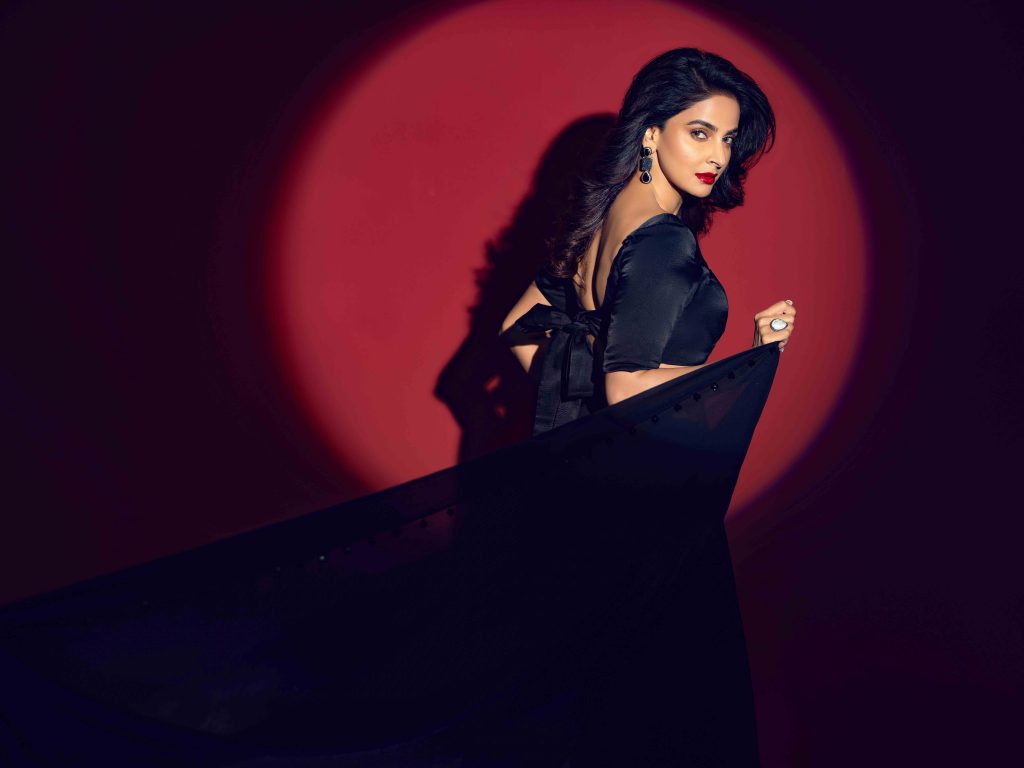 A talent powerhouse, Saba Qamar shines in every role she plays. This year, she portrayed Hina, a titular character in Sarmad Khoosat’s strikingly unique project, Kamli. Throughout a long, illustrious career, Saba has played a range of characters, including that of a writer in Digest Writer, a manipulative sibling in Maat, a former supermodel in Besharam, a rebel in Cheekh, and essayed public figures like Noor Jehan and Qandeel Baloch in Manto and Baaghi respectively. Qamar proved her acting talent effortlessly in India, playing the female lead opposite the late Irrfan Khan in Hindi Medium. The role earned her popular acclaim. With a career that only keeps growing, there is no stopping Saba Qamar anytime soon. Uncover the star power of Saba in our latest cover story.
A talent powerhouse, Saba Qamar shines in every role she plays. This year, she portrayed Hina, a titular character in Sarmad Khoosat’s strikingly unique project, Kamli. Throughout a long, illustrious career, Saba has played a range of characters, including that of a writer in Digest Writer, a manipulative sibling in Maat, a former supermodel in Besharam, a rebel in Cheekh, and essayed public figures like Noor Jehan and Qandeel Baloch in Manto and Baaghi respectively. Qamar proved her acting talent effortlessly in India, playing the female lead opposite the late Irrfan Khan in Hindi Medium. The role earned her popular acclaim. With a career that only keeps growing, there is no stopping Saba Qamar anytime soon. Uncover the star power of Saba in our latest cover story.
Saba, what more do you anticipate out of your career?
SABA QAMAR: To be honest, I am very happy with what I have and where I am. All I expect is consistency and positivity in all aspects of life.
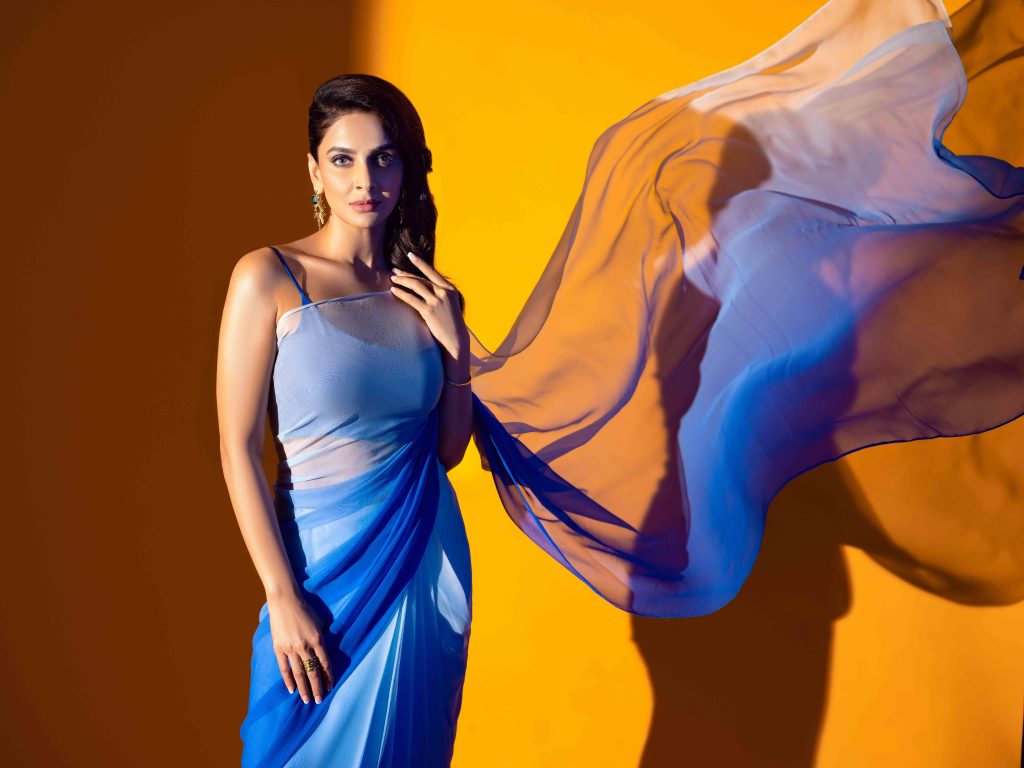 It is said that an actor’s life is only to a certain point. Do you see yourself acting 15 years from now?
It is said that an actor’s life is only to a certain point. Do you see yourself acting 15 years from now?
SQ: I don’t agree. Acting is forever and I see myself acting until I say goodbye to the world, which I believe is not happening soon!
You starred in this year’s acclaimed film Kamli. Walk us through the premise of the movie and why people should watch it?
SQ: People should watch the film to understand the meaning of how mental illness is important in all forms of life. They should also watch it because there is nothing like Kamli that has been made yet in Pakistan.
 Why did you agree to play a character like Hina? What was so compelling about this role?
Why did you agree to play a character like Hina? What was so compelling about this role?
SQ: Hina is someone that everyone can relate to. It is a character that will give you goosebumps! I had never played a role like this in my life, so I decided to go for it.
As an actor, what do you think was Sarmad Khoosat’s intention behind the making of Kamli?
SQ: He is a maestro. He wanted to make a masterpiece and he did exactly that.
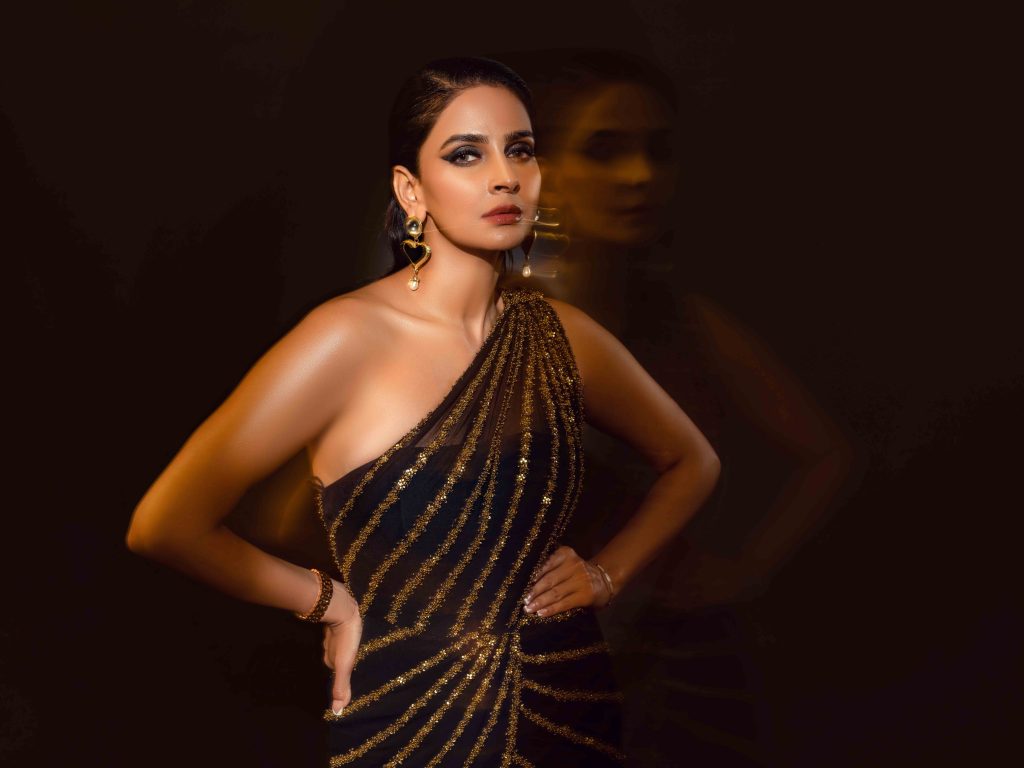 At the Lahore premiere of Kamli, you wore a blue outfit and the local media quickly compared you to Marilyn Monroe. Did you really pay homage to her or is the media misreporting?
At the Lahore premiere of Kamli, you wore a blue outfit and the local media quickly compared you to Marilyn Monroe. Did you really pay homage to her or is the media misreporting?
SQ: I am glad they noticed something that I was actually doing. They are smart people.
Walk us through your current struggles in the industry.
SQ: There are none. I am past that stage now anyways.
What were your initial career struggles, and what did you learn from them?
SQ: There were a lot of struggles, but in the end they helped me turn into a very humble person.
What is key to surviving in an entertainment industry like Pakistan’s?
SQ: Positivity and consistency.
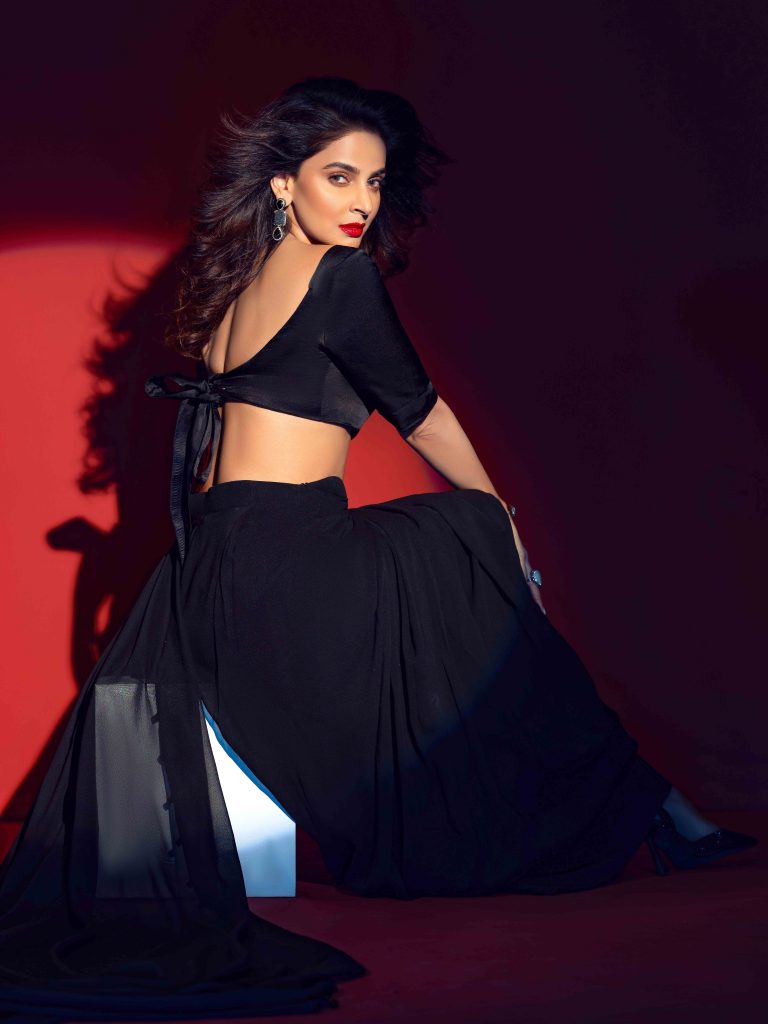 Many actors try to justify nepotism, claiming that it is rampant in other fields as well. However, they choose to turn a blind eye to the entertainment industry, where the majority of actors land roles because they have strong family ties. What are your thoughts on nepotism that grants easy access to select people in our show business?
Many actors try to justify nepotism, claiming that it is rampant in other fields as well. However, they choose to turn a blind eye to the entertainment industry, where the majority of actors land roles because they have strong family ties. What are your thoughts on nepotism that grants easy access to select people in our show business?
SQ: Everyone has their own set of struggles in getting recognition and fame. Nepotism only helps to some extent. The rest is all your talent.
Having also worked in Bollywood, do you find any similarities and/or differences working in India compared to Pakistan?
SQ: There is a huge difference because India’s industry is huge compared to ours. There is more professionalism in Bollywood, and that is what we have to learn as an industry.
Do you think Pakistan’s entertainment industry has an identity, or are we in the process of building it?
SQ: We do have an identity. Our dramas have a huge fan base, and unfortunately Indian television cannot even come close to the content of our dramas. I am proud of our industry and the way we are growing every day.
To follow up, most of our drama themes hold men in powerful positions and women are often subjugated in the process. How can our television content become more gender-neutral?
SQ: That can only happen if we start rejecting scripts that are centered on gender discrimination and show women as frail in front of men. If we take a stand and encourage gender neutral scripts, that is when our content will improve.
Do you feel that producers have to compromise on quality content for the sake of TRPs?
SQ: Yes, to some extent that is true, but producers always bear the responsibility of the content that is aired on television.
How are you different as a person now than you were five or ten years ago?
SQ: I have become very content and peaceful. I don’t let negativity affect me because I have learned to live with my positive vibes. I don’t waste my time on negativity caused by others.
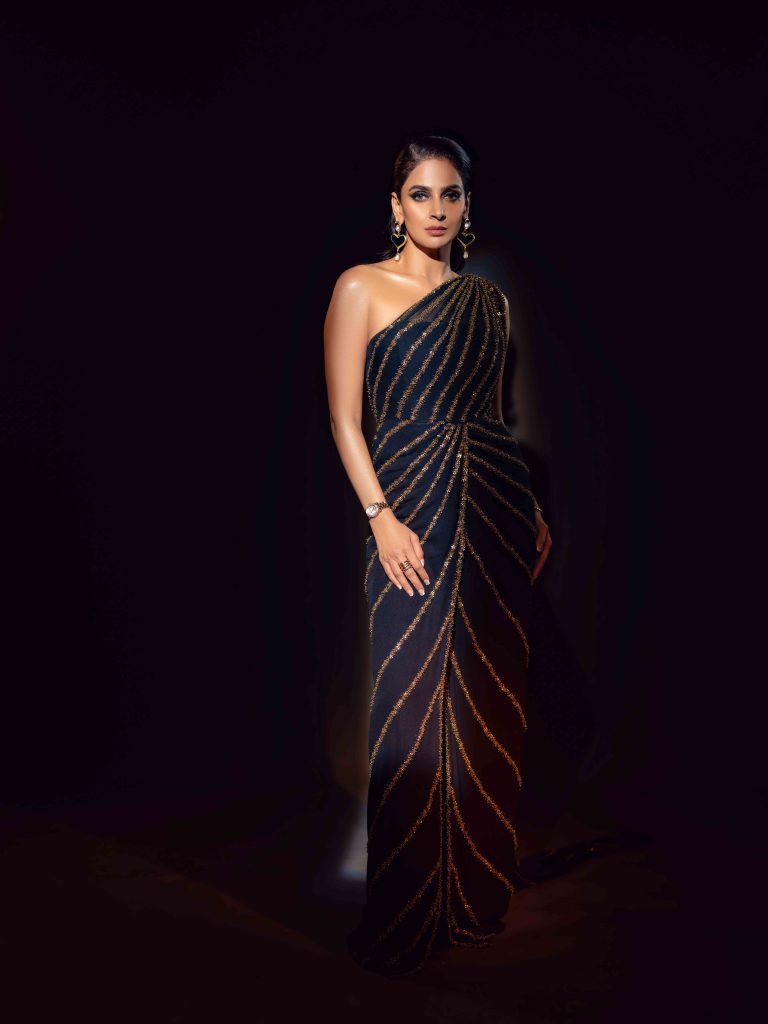 What makes you special?
What makes you special?
SQ: I will leave that on my fans to decide but I like my positive energy, and the act of letting go that I have learned from my personal life experiences.
To conclude, how do you want people to remember you?
SQ: As a thorough professional. There is no one like Saba Qamar.
INTERVIEW: HAIDER RIFAAT
STYLING: 9SOLUTIONS & RAO ALI KHAN
JEWELLERY: ROUGE BY ROOJ AMIR
PHOTOGRAPHS: MHM
![]()
